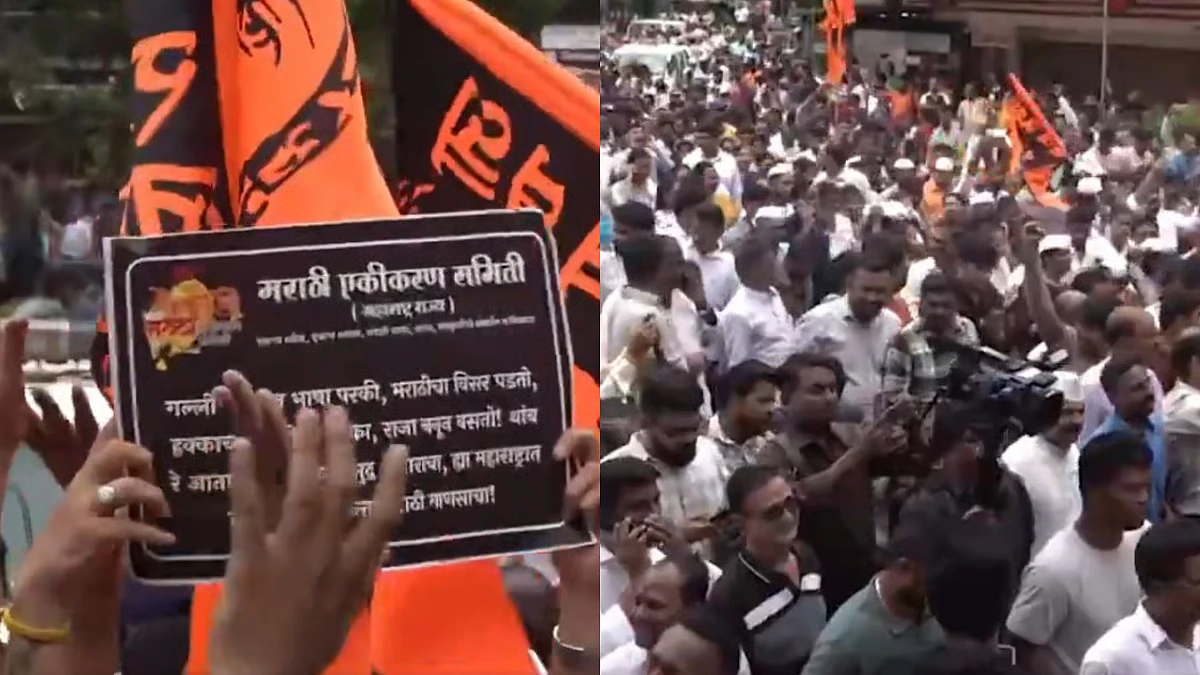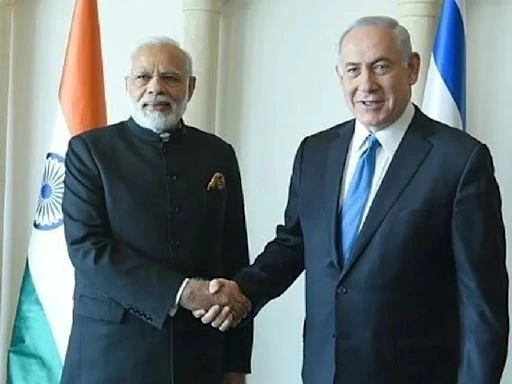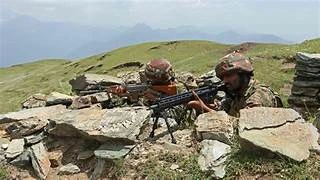08-JULY-2025, 02:30PM
In a city known for its cultural diversity, Mumbai once again found itself at the crossroads of linguistic politics. The Mumbai Police have arrested multiple workers from the Maharashtra Navnirman Sena (MNS) following heated protests related to an ongoing language row. The incident has sparked widespread debate and has reignited tensions between linguistic identities in the state.
The protests, which were held in several pockets across the city, resulted in significant disruptions to public life and raised security concerns. The Mumbai Police, acting swiftly, dispersed the gatherings and detained those who defied lawful orders and engaged in aggressive sloganeering.
Mumbai Police : Language Dispute Escalates in Maharashtra
Mumbai Police : The Trigger Behind the Protests
The current unrest traces back to a recent administrative decision mandating the use of multiple languages, including Hindi and English, in official signboards and government communication, a move seen by some as undermining the Marathi language.
The MNS, led by Raj Thackeray, has long championed the cause of protecting Marathi culture and language. According to party workers, the new policies dilute the status of Marathi in the state, and their protests aimed to assert its primacy, especially in Mumbai.
“We’re not against any language, but Marathi should not be sidelined in our own land,” said an MNS protester before being detained.
Mumbai Police Respond with Swift Action
Mumbai Police : Heavy Deployment Across City Hotspots
In anticipation of unrest, the Mumbai Police deployed extra forces in sensitive areas such as Dadar, Ghatkopar, and Kurla. These locations have traditionally seen strong support for the MNS and were identified as likely protest zones.
Despite Section 144 being in place in parts of the city to prevent unlawful assembly, MNS workers gathered in large numbers, waving party flags and chanting slogans. The police urged them to disperse peacefully, but after repeated warnings, arrests were made under provisions of unlawful assembly and disturbing public order.
Mumbai Police Statement on the Arrests
A senior officer from the Mumbai Police stated:
“While we respect democratic rights to protest, public safety and law and order are paramount. The arrested individuals were repeatedly warned but chose to ignore the legal directives.”
The detained workers were later taken to various police stations and are expected to be presented in court following due legal procedures.
Political Reactions and Public Opinion
Leaders Weigh In
The incident has drawn reactions from across the political spectrum. Shiv Sena (UBT) criticized the arrests as a “suppression of Marathi voice,” while the BJP and NCP called for balanced dialogue over linguistic issues instead of street protests.
Congress MP from Mumbai, Milind Deora, tweeted:
“Every language in India is beautiful. Let’s not fight over what should unite us.”
Mixed Response from Citizens
The public’s reaction has been polarized. While many sympathize with the sentiment of preserving Marathi identity, others believe that protests should not disrupt city life. Social media platforms were flooded with both support and criticism of the MNS and the Mumbai Police actions.
Understanding the Language Politics in Maharashtra
Historical Context
Language politics is not new to Maharashtra. The state has long experienced agitation over the dominance of non-Marathi cultures, especially in Mumbai, a city that draws people from all parts of India. The MNS and, before it, the Shiv Sena, have used this issue to mobilize support and build political narratives centered around Marathi pride.
The recent policy promoting multilingualism is part of the central government’s move toward greater national integration, but it has inadvertently revived these long-standing sensitivities.
Constitutional Perspectives
According to the Indian Constitution, every state has the right to declare its official language, and citizens are free to express themselves in any language of their choice. Maharashtra has Marathi as its official language, but Mumbai, as a cosmopolitan city, uses Hindi, English, and Gujarati extensively.
Legal experts have emphasized that no language can be forcibly imposed or suppressed, and such disputes must be resolved through democratic dialogue and not street violence.
Role of Mumbai Police in Maintaining Peace
Balancing Rights and Law Enforcement
The role of the Mumbai Police in such delicate matters is crucial. They are expected to balance the right to protest with maintaining public order. In this incident, their swift and restrained response likely prevented the protests from escalating into violence.
Local sources report that the police acted professionally, using minimal force and ensuring that no serious injuries or property damage occurred during the dispersal.
Previous Experience in Handling Linguistic Agitations
This is not the first time the Mumbai Police have dealt with linguistic protests. Their experience in handling similar agitations in the past helped them pre-empt and neutralize threats before they could spiral out of control.
They also coordinated with the traffic department to avoid major congestion and ensured emergency services remained unaffected.
What Lies Ahead?
MNS Calls for Further Mobilization
In response to the arrests, MNS leaders have called for a statewide protest and warned the government against “muzzling the voice of Marathi people.” A large rally is being planned for next week, and the Mumbai Police have already begun preparing for potential law-and-order issues.
Appeals for Dialogue
Political analysts are urging both sides to engage in constructive dialogue. The emphasis, they say, should be on education, inclusion, and policies that promote linguistic diversity without alienating any group.
Conclusion
The Mumbai Police have once again demonstrated their preparedness in handling complex social and political challenges. While the protests by MNS workers underscore the emotional weight carried by linguistic identity, it’s essential that such expressions stay within the framework of law and public safety.
As Maharashtra continues to grow as a modern, multi-lingual state, balancing tradition with progress will remain an ongoing challenge. The coming days will be crucial in determining whether political forces choose the path of peace or further confrontation.
Source : ANI





